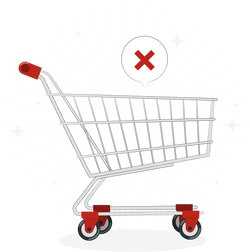Introduction
Perfume is more than just a fragrance; it’s a statement of personality and style. When searching for a signature fragrance, you probably came across some terms: EDP, EDT, and EDC. What is EDP perfume? And why do so many people wear it? Understanding the meaning of EDP perfume is quite helpful when deciding on the right fragrance for specific occasions or tastes.
Eau de Parfum (EDP) is one of the most standard concentration types found among fragrances; it generally holds a character. More than in the case with EDT and EDC, one may find longevity well balanced in a mix with the intensity and thereby preferred over those two fragrance concentrations. In this guide, we’ll break down everything you need to know about what EDP in perfume is, its benefits, and how it compares to other fragrance types.
What Does EDP Perfume Mean?
EDP is referred to as French terminology “Eau de Parfum” meaning in other words translated "water of perfume". Due to a large percentage of Fragrance oils (typically between 15% and 20%) is added it therefore makes a scented liquid holding for long in hours.
Longevity and Usage
-
Lasts between 6 to 12 hours, depending on skin type and environmental factors.
-
Suitable for day and night wear, offering a noticeable but not overwhelming scent.
-
Works well for special occasions and formal settings where longevity is important.
Pros and Cons of EDP
Pros:
-
The perfume lasts much longer than EDT and EDC
-
The perfume exudes a strong fragrance that is perfect for making statements.
-
Versatile; proper for casual use as well as for formal events.
Cons:
-
Overpowering when too much is applied to the skin
-
More expensive than other cheaper EDP concentrations.
-
May not be ideal for extremely hot climates where a lighter scent is preferred.
When is EDP the Perfect Choice for You?
-
If you prefer a long-lasting scent that doesn’t fade quickly.
-
When you want a fragrance that remains noticeable without reapplication.
-
If you’re looking for a perfume that works in both formal and casual settings.
How is EDP Perfume Different from Other Fragrances?
EDP differs from other fragrances based on concentration of perfume oils, longevity, and intensity. Here’s a quick comparison:
|
Perfume Type |
Oil Concentration |
Longevity |
Best For |
|
Eau de Cologne (EDC) |
2% - 5% |
2-4 hours |
Hot weather, casual wear |
|
Eau de Toilette (EDT) |
5% - 15% |
4-6 hours |
Everyday use, office wear |
|
Eau de Parfum (EDP) |
15% - 20% |
6-12 hours |
Formal events, long-lasting |
|
Parfum (Extrait) |
20% - 40% |
12-24 hours |
Special occasions, evening wear |
What is the Difference Between EDP, EDT, and EDC?
Many people often compare EDP vs EDT vs EDC when choosing a fragrance. Here’s a simple breakdown:
-
Eau de Cologne (EDC): Lightest fragrance concentration, ideal for refreshing scents.
-
Eau de Toilette (EDT): Balanced concentration, great for daily wear.
-
Eau de Parfum (EDP): Stronger scent, lasts longer, perfect for special occasions.
-
Parfum (Extrait de Parfum): Highest concentration, luxurious, and longest lasting.
Choosing the Right Fragrance Based on Occasion:
-
Daily Office Wear: Eau de Toilette (EDT)
-
Casual Outings: Eau de Cologne (EDC)
-
Evening Events: Eau de Parfum (EDP)
-
Luxury or Special Events: Parfum (Extrait)
Conclusion
Understanding what EDP perfume is and how it differs from EDT and EDC helps in making the right choice. Eau de Parfum strikes the perfect balance between longevity and strength, making it a versatile fragrance option. Whether you’re looking for an everyday scent or something special for an occasion, knowing the EDP full form perfume and its characteristics can help you make an informed decision.
Explore different EDP perfumes and find the one that complements your style and personality!






